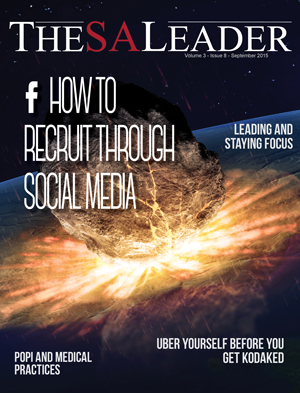In my own experience, I am amazed at how some business owners seem to think that it’s acceptable not to reply to important business emails, or to wait a week or two before responding. In today’s world, if it takes you two weeks to get back to someone with a quote or customer service response, you’ve missed the boat and probably ensured that your competitor has scooped the business opportunity. There are also businesspeople that seem to feel that it’s okay to only respond to people that they feel are “important enough”. This is incredibly brand-damaging!
At the other end of the scale are the people who are addicted to email. They may also be damaging their personal brands by not being able to focus on the meeting or task at hand because of the constant distraction of incoming email. Rather than acknowledging the fact that email can wait an hour or so, they constantly check their devices while in business meetings, at home or in the office, meaning that their focus is divided and those they are with feel they are not important.
Here are five tips to ensure that the way you use email is not negatively impacting your brand in the workplace:
• Be professional when you email. If you are using email as a business communication tool, you need to maintain a professional tone and style. Just as you probably wouldn’t call your boss up at say, “Yo, dude,” so your email should reflect a sense of respect. Steer away from overly familiar language, emoticons and SMS abbreviations like LOL.
• Be polite. Just because you’re sending an email doesn’t mean you can do away with the usual pleasantries of communication. Address emails politely, use full sentences and sign-off appropriately. Don’t type emails in capital letters (this is the equivalent of shouting at someone) and make sure you are clear on your reason for emailing (there is nothing more frustrating than being sent a blank email with an attachment, but no explanation).
• Treat everyone alike. And, as your mother may have told you, treat people the way you would like to be treated. To use a Downton Abbey analogy, treat people from downstairs as well as you treat those from upstairs. Don’t reserve good treatment for people you think are important enough to warrant it. After all, everyone knows the key to an audience with the CEO is to make friends with her PA.
• Manage your email wisely. It’s not necessary to respond to every mail the instant it arrives in your mailbox, but you should respond to mails within 48 hours. Productivity experts advise checking your emails once or twice a day, during a time that suits your schedule, and only responding during these times. After all, if the building is burning down, email is hardly going to be the communications platform of choice. Generally, emails can wait for an hour or two or three. Think carefully about when to schedule email time. Often, it’s the first thing we do in the mornings when this time and your best energy could be spent more wisely on strategic actions, rather than the mundane task of responding to mails. If you are in a position to do so, outsource some of the mail to your assistant or to relevant people in your office. For example, if you’re the marketing manager, don’t spend your time replying to product queries. Rather forward these mails to the relevant sales person or delivery manager.
• When you’re not emailing, don’t look at your mail. It is very frustrating to be in a face-to-face meeting with someone who keeps looking at his phone to check his mail. It’s even worse to be at an event with friends or family where you’re meant to be spending quality time together, but someone’s email notification keeps beeping. Rather be present. Switch your device on to silent and put it away. I can guarantee you that your meeting will go better, and your personal brand will enjoy a boost.




